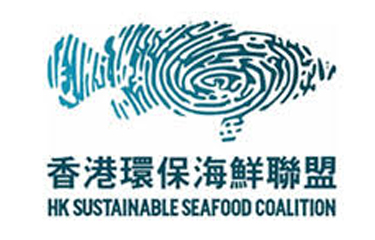Hong Kong Sustainable Seafood Coalition aims for responsible sourcing

A new group of seafood and seafood-related businesses based in East Asia have come together with the goal of improving sourcing practices in the region.
The Hong Kong Sustainable Seafood Coalition (HKSSC) was formed in January 2018 by a group of companies including hotels, suppliers, producers and retailers operating in the local seafood industry, to promote the responsible sourcing of seafood.
Coalition members commit themselves to improving their sourcing practices, thus encouraging the industry as a whole to improve, according to Huw Thomas, an advisor to the coalition and the general manager of Offshore Shellfish Ltd., which cultivates rope-grown mussels in the United Kingdom. The vision is for all seafood imported into Hong Kong to be legal, traceable and biologically sustainable, he said in an email to SeafoodSource.
HKSSC models itself after the Sustainable Seafood Coalition (SSC) in the U.K. Established in 2011, members of the SSC now account for around 75 percent of retail seafood sales in the U.K. SSC has assisted HKSSC, and HKSSC’s Code of Conduct is based on that of the U.K. organization.
Hong Kong’s seafood supply chains are mostly untraceable and details of the seafood products’ sustainability are unknown, according to Thomas. Specific challenges faced by the Coalition members include over-exploitation of fish stocks; increasing demand for seafood; poor aquaculture practices; increasing demand for and lack of supply of verified sustainable products; a growing lack of consumer confidence in products; and legal and reputational risks due to illegal, unreported, and unregulated (IUU) fishing.
Membership in the HKSSC is open to any company that buys or sells seafood in Hong Kong or Macau. Members are asked to adopt the coalition’s codes of conduct by assessing their seafood sources and making sourcing decisions based on the outcome, and attend webinars and biannual meetings. Members have access to a cost-effective online sourcing tool for sustainable and traceable seafood that is currently in development. This provides a simpler purchasing process for buyers and gives sellers access to highly qualified prospects. They can also share resources such as risk assessments, traceability audits, expert advice, a B2B traceability tool and insights into future developments such as the Global Dialogue on Seafood Traceability (GDST), in order to reduce costs to members.
GDST is an effort satisfy two goals: The ability to track forward and trace back at any point along the full supply chain, no matter how many trading or traceability partners and business process steps are involved (called “full-chain traceability”); and the ability of one traceability system to work with other traceability systems to seamlessly exchange and interpret key data elements across all critical tracking events in the supply chain (called “interoperable traceability”). It is promoted by the Institute of Food Technologists (IFT) through its Global Food Traceability Center (GFTC) and the World Wildlife Fund (WWF).
HKSSC members also gain the ability to tout their membership in a sustainability initiative. While HKSSC is not a certification scheme, so the logo of the organization is not to be placed on individual products, the logo can be placed on company literature, websites, and menus (but not next to specific menu items). It is meant to convey to the public that the company is committed to responsible seafood-sourcing.
HKSSC prefers the term “responsibility” over “sustainability,” Commission Secretariat Julia Whitney told SeafoodSource.
“Sustainability is an overused term here, often associated with inaccurate claims,” she said. “For this reason, we decided to stick with the term ‘responsibly sourced.’”
The code of conduct of the organization, which can be seen online, lists several requirements for a responsibility claim.
“The source fishery or aquaculture source is consistent with the principles of relevant key international standards; and an independently audited chain of custody is in place to trace the fish to its (fishery or aquaculture) source; or the transparency, traceability and product integrity criteria have been met (in the case of aquaculture, wild capture fish feed sources also need to be considered); or fish is sourced in alignment with the HKSSC Code of Conduct on Responsible Fish and Seafood Sourcing,” according to the code.
Thus, the code relates not only to sustainability, but also to legality and traceability. Social compliance issues, such as labor issues, are beyond the scope of the code at this time, the organization said.
Seed funding for the Coalition was provided by ADM Capital Foundation and Swire Charitable Trust. Other notable supporters include the Teng Hoi Conservation Organization, Hongkong and Shanghai Hotels Group, and Skadden, Arps, Slate, Meagher & Flom LLP and KPMG.
The HKSSC will present at the upcoming Seafood Expo Asia, taking place 3 to 5 September at the Hong Kong Convention and Exhibition Centre in Wanchai. The session is billed as “a chance to learn about the codes of conduct created by the HKSSC and how they address the pressing issues of IUU fishing and biological sustainability.”






Share